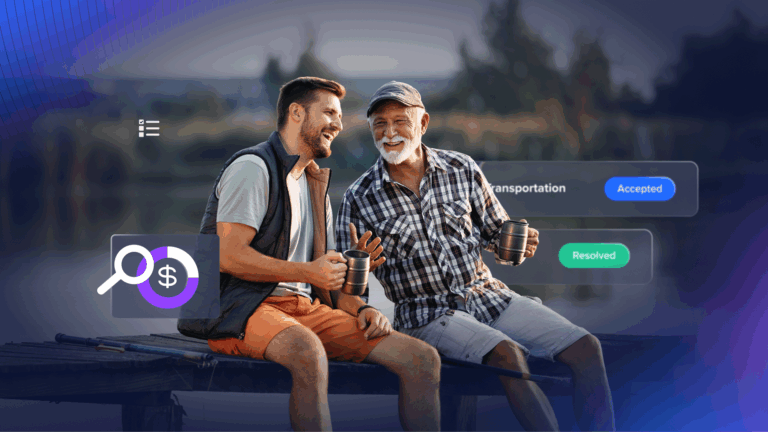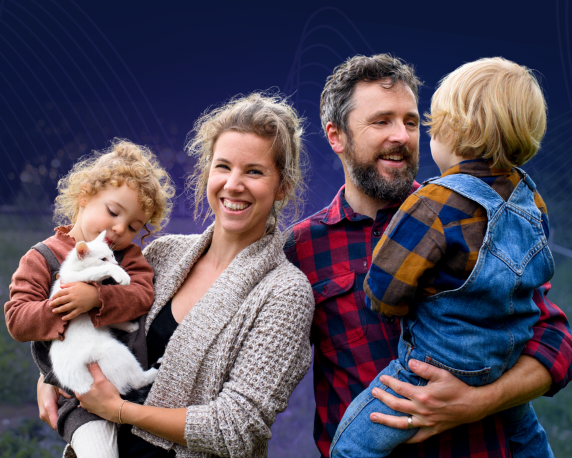A FHIR-side Chat: How Elligint Health Is Powering Better Outcomes Through Integration with Unite Us
Elligint Health is reimagining care coordination by combining workflow automation, real-time insights, and seamless integration to help healthcare organizations support whole-person care. In this pre-recorded Q&A, we’ll sit down with Sue Powers, Chief Growth Officer at Elligint Health, to discuss how their partnership with Unite Us is bringing community-based support directly into care management platforms.
Here’s what you’ll learn:
- Why care teams are prioritizing addressing non-medical drivers of health
- How Elligint Health is building smarter, more efficient workflows with Unite Us
- How FHIR-based integration can help close the loop between healthcare and community-based care
- What’s next for the future of care coordination as technology, data standards, and industry expectations continue to evolve
Hi, everyone, and welcome to the second session of our Fireside Chat Series, where we sit down with leaders across the healthcare ecosystem to talk about the role of interoperability, EHR integration, and community collaboration in empowering more connected, person-centered care. I’m Priscilla Deboni from Unite Us, and today I’m joined by Sue Powers, Chief Growth Officer at Elligent Health. Elligent Health is a care management company aligning stakeholders, delivering intelligent healthcare solutions, and enabling proactive whole-person care across the continuum. Sue previously served as Chief Growth Officer at VirtualHealth (which joined forces with HealthEC to form Elligent Health). Outside of work, she enjoys time with family and friends, supporting charitable organizations, and playing pickleball. Sue, it’s a pleasure to have you—thanks for joining us.
Sue: Thank you, Priscilla. It’s a pleasure to be here.
To start us off, could you share a bit about Elligent Health and your role as Chief Growth Officer?
Sue: Elligent Health is focused on whole-person, proactive care—making care more connected and actionable. We bring together clinical, behavioral health, and social data so care teams have a complete picture of each individual’s needs. My role is to expand that mission by building strategic partnerships that extend the value of our ecosystem—working with organizations like Unite Us to bring more value into communities and ultimately improve outcomes. My job is to help Elligent grow in ways that make the broader ecosystem stronger, more connected, and more sustainable.
From your perspective, what’s driving demand for more proactive, connected care, and how is Elligent embedding that into its platform and partnerships?
Sue: We know health outcomes are shaped far beyond clinical walls. Clinical care contributes roughly 20% to outcomes, while 40–50% is driven by social determinants of health. Two people with the same condition can have very different outcomes because of social factors. We embed this philosophy directly into our platform and through partnerships—so care teams see the full picture and can act on social needs, not just clinical ones.
That partnership focus led to the Elligent–Unite Us integration, which enables organizations to connect patients and members to community resources directly from Elligent’s care management platform. What inspired the partnership, and which challenges are you solving together?
Sue: We share a commitment to addressing nonmedical drivers of health. Many clients used to rely on paper binders of community resources—hard to maintain, hard to track. Together with Unite Us, we provide a digital, closed-loop approach so teams can find resources, make referrals, and see whether services were delivered. It’s embedded alongside clinical workflows, so whole-person care becomes actionable and scalable.
For those following along, can you walk us through the integration from a provider’s perspective—what it enables for workflows, care coordination, and efficiency?
Sue: Within our Helios platform, a clinician clicks into Unite Us with appropriate patient context and creates the referral. Status updates flow back to Helios, so the team can monitor progress alongside clinical activity. Everyone sees where things stand—no more manual calls or guesswork. It streamlines communication, reduces manual follow-up, supports integrated care planning across clinical and social needs, and improves handoffs so fewer people fall through the cracks.
Elligent has also made headlines for innovations like Narrative Query Language (NQL), real-time dashboards, and predictive risk analytics. How do partnerships like Unite Us fit into your innovation strategy?
Sue: No single company can solve these challenges alone. It takes an ecosystem and an interdisciplinary care team. Connected Apps is our approach to partner integrations—fast and seamless. We’re also advancing NQL/AI for meaningful impact, real-time dashboards for early warning and proactive intervention, and predictive analytics to anticipate rising risk across clinical and social domains. The goal is proactive health—not “sick care.”
FHIR keeps coming up as requirements and standards evolve. What role do FHIR and other interoperability standards play in improving how organizations share, track, and act on drivers-of-health data?
Sue: Interoperability is essential. Real-time data is required for proactive and predictive decisions. When data is siloed or delayed, you miss the window to intervene. FHIR is helping the industry coalesce around standards that break down fragmentation so data can flow in real time across the continuum—clinical and social—making it actionable. Think of banking and ATMs as the analogy: we need that same ubiquity and reliability in healthcare.
Which organizations are best positioned to benefit from the Elligent–Unite Us integration?
Sue: Those serving high-priority, high-risk populations—where social needs significantly affect outcomes—see the most impact: Medicaid, LTSS, and often Medicare populations. The organizations that succeed view social and clinical care as inseparable and build processes around that philosophy.
As Elligent and Unite Us approach three years of partnership, what are you hearing from customers?
Sue: Growing recognition of the importance of a closed-loop approach to social determinants. Clients’ research shows, for example, that people in low-income neighborhoods often have markedly lower life expectancy due to factors like unstable housing, unsafe environments, and food deserts—driving chronic disease and ER visits. By leveraging clinical and social data together through this integration, organizations aim to intervene earlier, keep people out of the hospital, and support longer, healthier lives.
Looking ahead, what’s the next chapter of care coordination as technology, data standards, and expectations evolve?
Sue: True integration. Many organizations still operate in silos. We need a unified 360-degree view—clinical and social—augmented by predictive analytics, FHIR-based exchange, and AI-driven insights so we can anticipate needs before they escalate. Expectations from providers and consumers are shifting toward seamless, engaging experiences. Our role is to build the infrastructure that makes that vision real and sustainable—improving outcomes and lowering costs. It’s not just coordinating care; it’s orchestrating it so it feels connected, timely, and impactful.
Final question: What advice would you give organizations expanding capabilities to support nonmedical drivers of health, and what’s one key takeaway?
Sue: First, recognize that addressing nonclinical drivers isn’t a side project—it’s central to outcomes and cost control. Build partnerships with community-based organizations and align on shared goals. Invest in technology and data structures that make work actionable. Start strategically but work incrementally—focus on your most at-risk populations, learn, then expand. The leaders of the future will treat medical and social care as inseparable and put the infrastructure in place for whole-person care. That’s how we make a difference.
Priscilla: Sue, thank you so much for your time and insights. It’s exciting to see partners like Elligent Health leading the charge in more connected, community-centered care. And thanks to everyone watching. If you’re interested in how Unite Us integrates with your EHR workflows to connect patients to community care, visit uniteus.com to continue the conversation. See you next time!
Speakers

Sue Powers
Chief Growth Officer, Elligint Health

Priscilla Daboni
Senior Solutions Engineer, Unite Us
Organizations




